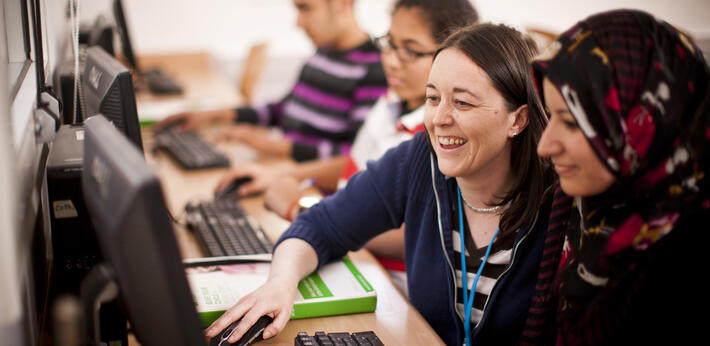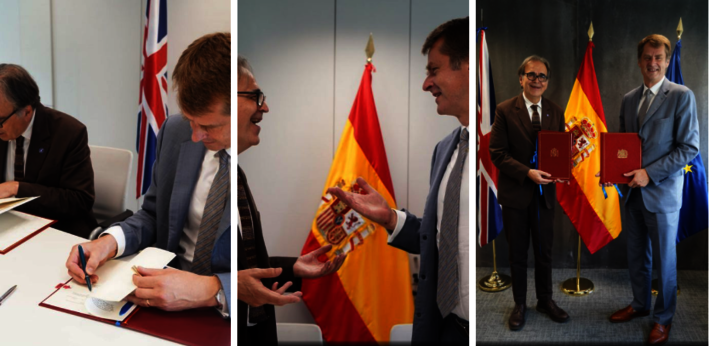You are here
Home ›15/11/2021
Wider Europe - Covid-19 update - 15 November 2021
Update 15 Nov
Turkey – Covid-19 daily cases decrease, schools and universities continue face-to-face teaching, Turkish Liras weakens against foreign currencies.
Updates
Public institutions, organisations are in normal working order.
The daily number of Covid-19 cases are around 20K. The highest reported was 33K on 12 October.
Turkey mass vaccination with Pfizer’s BioNTech reached to 80 per cent of the total adult population. Citizens aged 12 and older eligible for Covid-19 vaccines. Six months after receiving their second dose of the mRNA vaccine, healthcare workers, chronic patients between the ages of 18-60, and citizens over 60 are eligible to get a booster shot.
Until 30 December 2021, passengers must have a negative Covid-19 PCR test taken at most 72 hours before arrival, if in the past 14 days they have been in Afghanistan, Bangladesh, Brazil, India, Nepal, Pakistan, South Africa or Sri Lanka. Passengers from any countries other than above they are also required to submit a negative Covid-19 rapid antigen test taken at most 48 hours before.
Until 30 December 2021, travellers are requested to submit a completed "Traveller Entry" form at most 72 hours before departure and presented at check-in and upon arrival.
UK removed Turkey from Covid-19 travel red list which means travellers from Turkey no longer need to self-isolate since September 2021.
Turkish citizens and residents must have proof of either two Covid vaccinations or recent Covid-19 recovery (linked to the national online Covid-19 tracking system HES) or a negative PCR test (within 48 hours) for all domestic travel by planes, and inter-provincial travel, including buses, trains or other public transportation vehicles. Checking into accommodation including hotels, motels, boarding houses, pensions, camps etc. and entering to public buildings, shopping malls and banks also require submission of a HES code.
Turkey accepts the UK’s proof of Covid-19 recovery and vaccination record.
Schools started as of 6 September as planned. Unvaccinated teachers and school staff are asked to get a PCR test at least twice a week.
Economic outlook in Turkey
According to The World Bank, Turkey was among the few countries that showed positive growth in 2020 and the Turkish economy was strong in the first six months of 2021. Turkey’s year-end growth rate is forecasted to be over 8 percent.
The annual inflation rate was announced to be 19.89 percent in consumer prices (CPI) and 46.31 percent in producer (PPI) prices. According to the Inflation Research Group consumer price inflation increased by 6.9 percent in October and the annual inflation rate reached 49.87 percent.
The cumulative international direct investment inflow to Turkey in the last 12 months reached USD 12.1 billion reaching the level of pre-pandemic days.
The unemployment rate in Turkey is 12.1 percent, and 22.7 percent in the 15-24 age group. Most of the newly graduated young people have difficulties in finding a job, and those who could find a job work for low monthly salaries. On the other hand, some industries seek young people to hire. Ranking first among them is e-commerce, which has grown further globally and in Turkey with the pandemic. Experts expect the number of e-commerce companies in Turkey to reach 350 thousand in late 2021.
In the last 12 months, Turkey broke exports record by reaching an export total of USD 212.2 billion. Turkey's share in global exports exceeded 1 percent for the first time in its history.
Foreign currencies continue to rise against the TL, USD reaching above TL 10 and GBP reaching TL 13.50.
Cut in interest rate causes increase in the exchange rate for the US dollars. Hard currencies like US Dollars, Pound and Euro have gained value by around 30 percent since November 2020.
House rents have increased dramatically in the last 12-month period in Turkey. The highest increase in house rent is in Istanbul which went as high as 80 percent followed by Antalya at 77 percent, Ankara at 52 percent, Bursa at 51 percent, and Izmir at 49 percent.
Schools and universities
Turkey has over 26 million students, including 18 million school students and 8 million higher education students.
Schools
Schools are open and teaching face-to-face since 6 September. Turkey currently has 850 thousand classes in has 71,320 state and private schools. Schools are not closed but classes if there are two Covid-19 positive cases in a class.
The minimum eight terms requirement for graduation at open high schools for students over 18 was reduced to five terms. The Ministry of National Education (MoNE) carries out significant investments for the education of adults which allow students over 18 will get to complete their secondary education in two years.
‘1000 Schools in Vocational Education Project’ was launched with an investment of one billion TL with the purpose of decreasing success differences among schools and reinforcing vocational education.
Ministry of National Education (MoNE) aims to increase the schooling rate from 14 to 50 percent among 3-year-olds, from 35 to 70 percent among 4-year-olds, and from 78 to 100 percent among 5-year-olds.
Universities
Unvaccinated university students and staff will periodically provide PCR tests.
MoNE announced the scholarship programme, sponsoring 358 students for the 2022-23 academic year compared to 800 to 1000 scholarships they have been offering to date. Around 250-300 places were available for students who preferred studying in the UK. This decline in total scholarship numbers is due to change in their focus on strategic areas and decline in need of trained academics.
According to the QS 2022 World University Rankings, Koc, Sabanci, Middle East Technical, Bilkent, Bogazici, Istanbul Technical, Ankara, Hacettepe and Istanbul Universities are ranked in the top 1000 university league table.
UK Visas and Immigration (UKVI)
Visa Application Centres (VACs) run their operation with reduced working hours. The VACs in Istanbul, Ankara and Izmir are open four days a week on Mondays, Tuesdays, Thursdays and Fridays, in Adana on Mondays, Wednesdays and Fridays, in Antalya and Bursa on Mondays and Wednesdays.
UKVI has been receiving a significant volume of visa applications since Turkey has been off the red list. Applicants are strictly advised to apply as early as possible as some applications exceed the standard process time which is 15 working days.
Contact
British Council direct marketing services, including digital promotion, remain available to help the UK institutions engage with students and retain a presence in Turkey.
For more information, please contact Semra Yalcin Dogan, Education Manager at Semra.Yalcin@britishcouncil.org.tr






